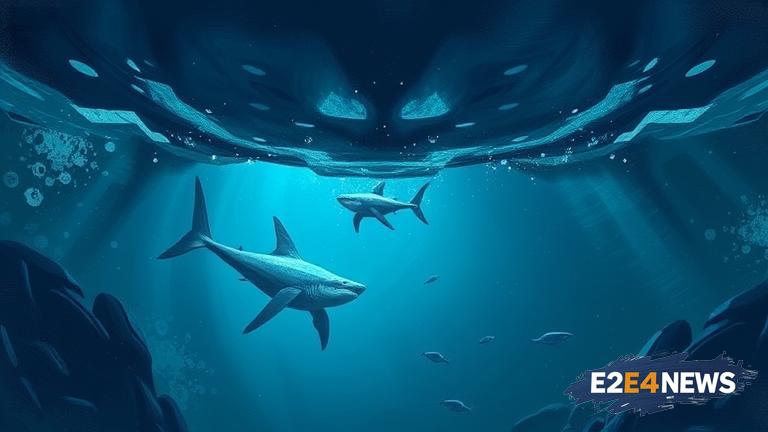The ocean, which covers over 70% of the Earth’s surface, remains one of the most mysterious and unexplored environments on the planet. Despite its importance to the planet’s ecosystem and climate, much of the ocean remains a vast, uncharted territory. The deepest parts of the ocean, known as the hadal zone, are a particularly fascinating and largely unexplored region. This zone, which extends from about 6,000 to 11,000 meters below sea level, is characterized by extreme pressure, near-freezing temperatures, and a lack of light. The hadal zone is home to a unique community of organisms that have adapted to these extreme conditions, including giant tube worms, deep-sea fish, and microorganisms that can survive in the harsh environment. One of the most significant challenges in exploring the hadal zone is the extreme pressure, which can reach over 1,000 times the pressure at sea level. This pressure makes it difficult for humans to explore the area, and as a result, much of what we know about the hadal zone comes from remote-operated vehicles (ROVs) and autonomous underwater vehicles (AUVs). These vehicles have allowed scientists to explore the hadal zone in greater detail, discovering new species and ecosystems that were previously unknown. Despite these advances, much of the ocean remains unexplored, and new discoveries are still being made. For example, in recent years, scientists have discovered new species of deep-sea fish, coral, and other organisms that were previously unknown. These discoveries highlight the importance of continued exploration and research into the ocean and its ecosystems. The ocean plays a critical role in the Earth’s climate, producing half of the oxygen we breathe and absorbing a quarter of the carbon dioxide we produce. However, the ocean is facing numerous threats, including climate change, pollution, and overfishing. These threats have significant impacts on the ocean’s ecosystems and the planet as a whole. For example, climate change is causing sea levels to rise, leading to coastal erosion and flooding. Pollution, including plastic pollution, is harming marine life and contaminating the food chain. Overfishing is depleting fish populations, damaging ecosystems, and threatening the livelihoods of people who depend on the ocean for food and income. To address these challenges, it is essential to continue exploring and researching the ocean, as well as taking action to protect and conserve its ecosystems. This can include establishing marine protected areas, reducing pollution, and promoting sustainable fishing practices. By working together to protect the ocean, we can help to ensure the long-term health of the planet and its inhabitants. The exploration of the ocean is not just important for the environment, but also for human health and well-being. The ocean is a source of new medicines, food, and other resources that are essential for human life. For example, many medicines are derived from marine organisms, and the ocean is a significant source of food for millions of people around the world. In addition, the ocean has a significant impact on human mental health and well-being, with many people relying on the ocean for recreation, relaxation, and inspiration. Overall, the ocean is a vital component of the Earth’s ecosystem, and its exploration and conservation are essential for the health and well-being of the planet and its inhabitants. The hadal zone, in particular, is a fascinating and largely unexplored region that offers many opportunities for scientific discovery and exploration. By continuing to explore and research the ocean, we can gain a deeper understanding of its ecosystems and the importance of conservation and protection. This knowledge can help to inform policy and management decisions, ensuring the long-term health and sustainability of the ocean and its resources. Furthermore, the exploration of the ocean can also inspire new generations of scientists, explorers, and conservationists, promoting a greater appreciation and understanding of the ocean and its importance to the planet. In conclusion, the ocean is a complex and fascinating environment that remains largely unexplored. The hadal zone, in particular, is a unique and largely uncharted territory that offers many opportunities for scientific discovery and exploration. By continuing to explore and research the ocean, we can gain a deeper understanding of its ecosystems and the importance of conservation and protection, ultimately helping to ensure the long-term health and sustainability of the planet and its inhabitants.
